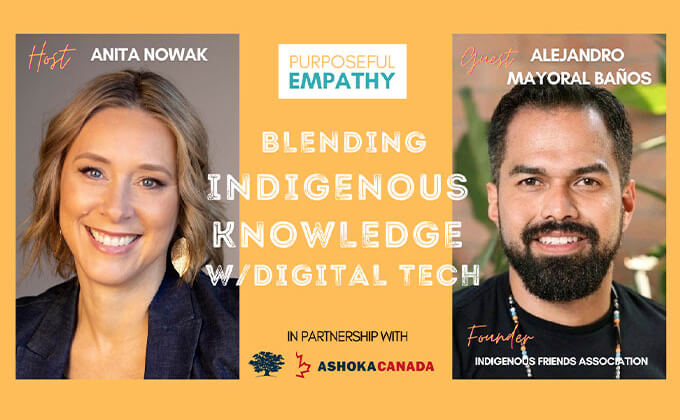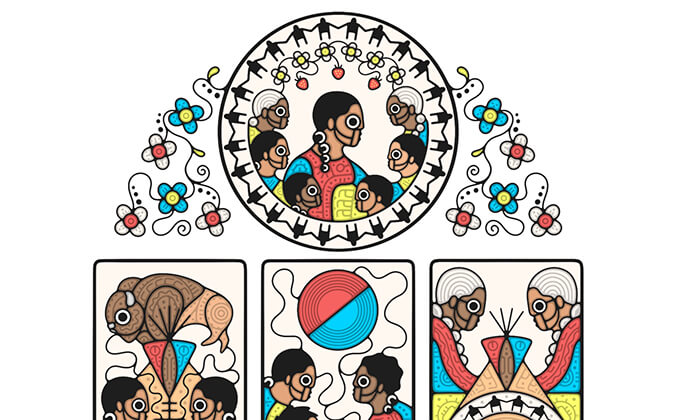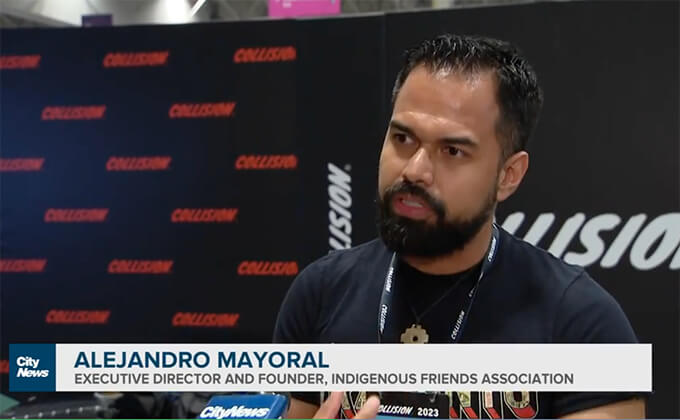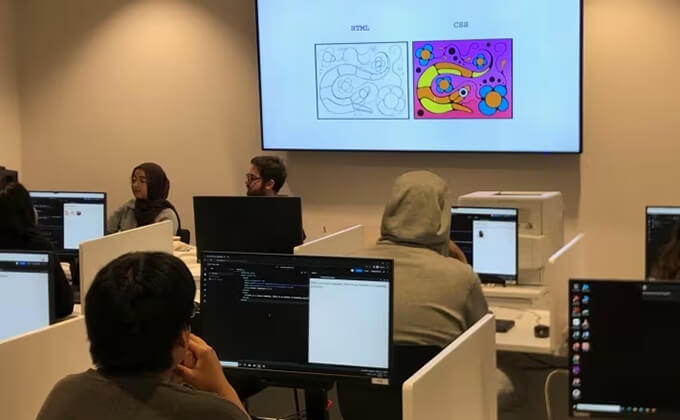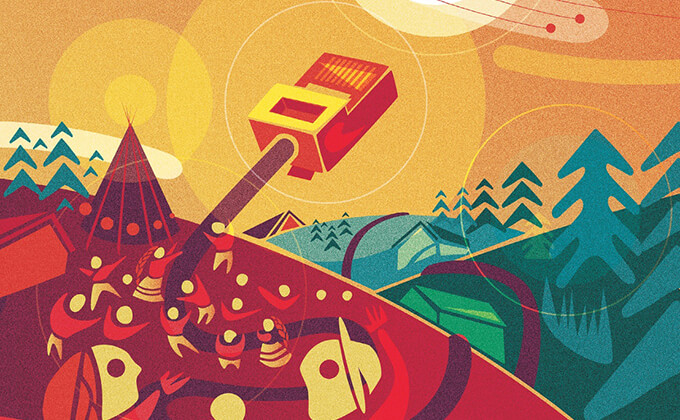Alejandro Mayoral Baños
Indigenous Friends Association
Toronto, ON
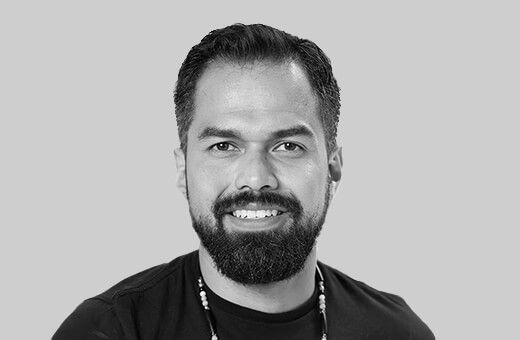
Sector Impact
Children & Youth
Economic Development
Education
Indigenous Peoples & Reconciliation
Science & Technology
BRIDGING THE DIGITAL DIVIDE FOR INDIGENOUS YOUTH
The Challenge: Indigenous youth too often lack the mentorship, bandwidth, education, and connections needed to access — and thrive in — the digital job market. What’s more, the tech industry is built on extractive, colonial models that aren’t sustainable in a future shaped by climate crisis. We need a new model for tech that incorporates Indigenous worldviews.

The Solution: Alejandro Mayoral Baños’s Indigenous Friends Association (IFA) is amplifying Indigenous voices, worldviews, and ways of knowing to promote Indigenous self-determination, inclusion, and equity in digital tech. Through training, research, and advocacy, IFA aims to shape a sustainable future for Indigenous youth in Canada, and for the tech sector as a whole.
Decolonizing digital spaces
Canada’s First Peoples have inhabited Turtle Island for millennia. But that doesn’t mean that Indigenous peoples are “of the past” when it comes to tech, says Alejandro Mayoral Baños. In fact, he says, the tech industry desperately needs to incorporate Indigenous worldviews to sustain itself in a global future shaped by the climate crisis.
The founder of the Indigenous Friends Association has made it his mission to build bridges between the tech sector and Indigenous communities, creating sustainable pathways for Indigenous youth to find culturally aligned careers in tech. In the process, says Alejandro, the IFA aims to create a more collectivist, equitable, and sustainable tech sector by incorporating Indigenous ethics, knowledge, and values.
The work is needed: More than three-quarters of Indigenous youth living remotely see no opportunities for tech training in their communities. Indigenous workers represent only 2.2% of Canada’s digital technology workforce, reflecting the sector’s struggles to meaningfully incorporate inclusive and diverse human resources practices.
To train Indigenous youth in competencies like UX design and web development, IFA runs the introductory, four-week INDIGital course and the more comprehensive, 30-week IndigiTECH program. These free tech education programs combine face-to-face and online learning that integrates skills development with healing sessions with Indigenous Elders and Knowledge Keepers. For example, the programs incorporate learning circles, prioritize collective wisdom, and focus on Indigenous self-determination and digital sovereignty over knowledge extraction and individualism.
IndigiTECH graduates are eligible for internships with IFA partners — including companies like Shopify, Salesforce, Interac, and CIBC, among others. Crucially, IFA supports its learners and interns with access to mentors and Elders, as well as childcare, food stipends, laptops, and other resources they need to successfully complete the program. The IFA also collaborates with technology firms to develop internships and train recruitment teams. Academic partnerships with researchers from York University and Toronto Metropolitan University build the evidence base for IFA’s advocacy and the effective implementation of its programs.
The IFA is also developing i-ConnectED, a cutting-edge educational platform that delivers course content and instructor communications directly through popular social media channels like WhatsApp and Facebook Messenger, effectively engaging students on the digital platforms they use every day.
Digital technology says Alejandro — who maintains relationships and connections with Totonac communities in Mexico — is increasingly central to Indigenous cultures. “In communities always on the move because of colonization, and now climate change, the mobile phone is the only way for many people to connect with their cultures, or to preserve and speak their languages. Digital technology increasingly aligns with oral traditions.”
As Indigenous cultures adapt to incorporate the strengths of digital technology, Alejandro is building, with the IFA, a world where tech can similarly adapt to the strengths of Indigenous worldviews.
